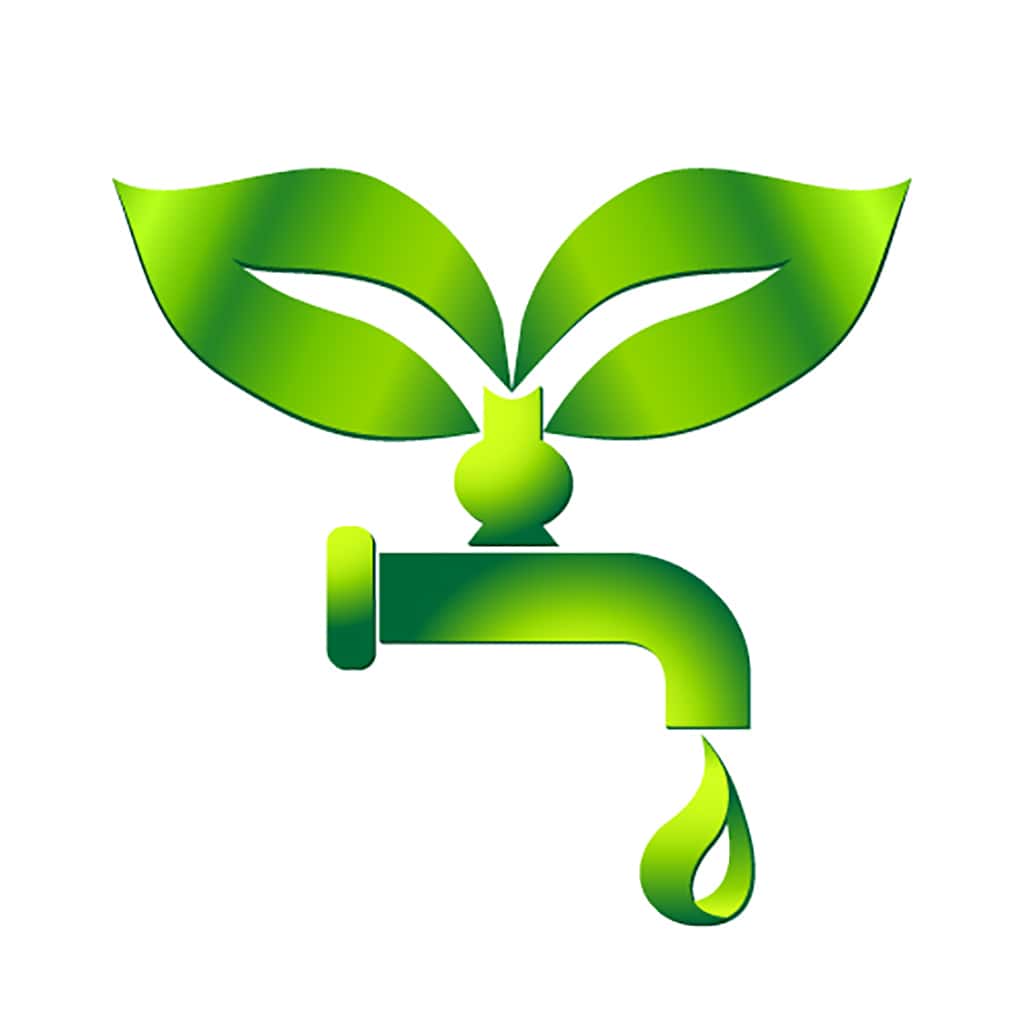
Plumber Tips On Going Green, Water Conservation, And Eco-Friendly Plumbing | Atlanta, GA
Water conservation and threats to the environment are getting a lot of attention these days. Although Atlanta, GA, isn’t experiencing an extensive drought or facing severe water shortages, it’s always a good idea to avoid wasting water. Minimizing our impact on the environment is very important too. Fortunately, your local plumber can do a lot to help your household go green. Even small changes can make a big difference.
Low-Flow Fixtures
Most households use most of their water in the bathroom and kitchen. Homes with basements or laundry rooms should consider those locations too. Low-flow shower heads and faucets are very minor changes that can save a lot of water. A low-flow head goes through approximately 2 gallons of water per minute, which is significantly less than 5 to 8 gallons per minute from traditional shower heads. This change may also lead to savings on energy bills because showers won’t use so much hot water.
A typical toilet in the United States uses 5 to 7 gallons of water per flush. Toilets made before 1980 can use up to 8 gallons per flush. It may sound surprising, but there are plenty of 40+ year old toilets still functioning in homes throughout the country. New toilet models rarely use more than 1.6 gallons per flush, but low-flow models can use even less. The toilet is a great place to start conserving water. Your plumber can help you choose an appropriate low-flow toilet model and install it in your home.
Dual Flush Toilets
Dual flush toilets have two buttons on top of the fixture. One button flushes with 0.8 gallons of water, which is usually for liquid waste, while the other button uses 1.6 gallons of water to flush solid waste. Sometimes the stronger flush option is a good idea if the toilet seems to be draining slowly or there’s a lot of toilet paper in the bowl. However, nothing should be flushed except toilet paper. Sanitary napkins, cotton balls, and other common bathroom items can potentially clog your toilet and other drains as well.
WaterSense Toilets
WaterSense toilets are certified by CSA International, which is a program that meets EPA guidelines and functions like EnergyStar. It rates plumbing fixtures instead of energy efficient appliances. WaterSense was started to help consumers make informed choices and make sure manufacturers can’t advertise false claims. Any toilet with a WaterSense label uses, at most, 80% of the water used by a typical toilet. This means the toilet uses 20% less water than a traditional toilet with every flush. That’s a lot of water that adds up to significant savings each year.
Sink and Faucet Combination Toilets
Some toilet models actually have built-in sink and faucet combinations on the lid. These innovative toilets are perfect for small bathrooms. Of course, water conservation is the most important concern. A combination toilet reroutes clean water into the faucet. The water used to wash your hands or brush your teeth is held in the fixture and used to flush the toilet. If a combination toilet doesn’t sound appealing for the main household bathroom, consider combination toilets for half-baths or guest rooms. It’s best to have a plumber handle installation to make sure water goes where it should.
Composting Toilets
Composting toilets are a very environmentally friendly choice. These toilets let natural decomposition and water evaporation help to break down waste. Very little water is used because waste isn’t flushed away. However, composting models are best suited to rural areas. Ask your plumber if a composting toilet is a good choice for your household. Although Atlanta, GA, isn’t the best place for a composting toilet, it may be appropriate in homes outside of the city.
Water Filtration Systems
Whole house filtration systems provide plenty of benefits. They can improve the taste of water and alleviate problems caused by hard water. Filtration systems can also have a positive impact on the environment and reduce water use, although these benefits are indirect instead of immediately noticeable. Impurities in the home’s water supply are mostly removed by a whole house filtration system. This prevents mineral residue that’s very hard on plumbing fixtures and appliances. Ask your plumbing professional if you aren’t sure if hard water in your home is a problem or not.
Sometimes hard water interferes with laundry detergent, dish soap, and even shampoo and conditioner. The household may use more cleaning products, and even more water, to compensate for reduced effectiveness. These coping strategies are no longer necessary after your plumber installs a water filtration system. Another potential benefit is a bit more direct. There’s no need to buy bottled water because filtration can improve the taste of water coming from the tap. Consult your plumber before making permanent decisions about whole house filtration. There are several factors to consider, such as appropriate filter types and sizes as well as flow rates for various appliances.
Leak Detection Systems
Leak detection systems are very useful inventions that let you know a leak exists almost immediately. You can choose from a wide range of detection devices, and some devices also track water use and other useful information. Some basic devices are small discs or boxes that sit on the floor near appliances or fixtures such as the washing machine, toilet, or refrigerator. Sensor terminals detect water and send an alert via Bluetooth or Wi-Fi. Audible warnings from the device itself also notify anyone in the house when the leak occurs.
Basic leak detection devices are good for monitoring specific locations, but a more extensive system is needed to detect leaks or broken pipes inside walls and other hidden spaces. You’ll probably need a professional plumber to install the system in your home. Most devices monitor water flow rates, pressure, and temperature. After 1 or 2 weeks of monitoring, your device knows the household’s normal water use habits. Any change will trigger sensors and the system sends an alert. In addition to catching leaks early, these systems can also help identify habits that waste water. Your plumber can also evaluate the data and offer advice.
Peach Plumbing & Drain provides plumbing services to home and business owners throughout Atlanta, GA. An experienced team of professional plumbers is always happy to help home and business owners upgrade plumbing fixtures and plan water conservation strategies. Call or visit the website to schedule a consultation.

